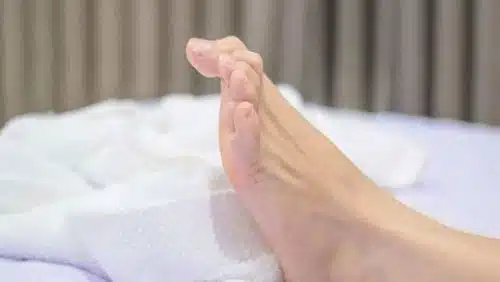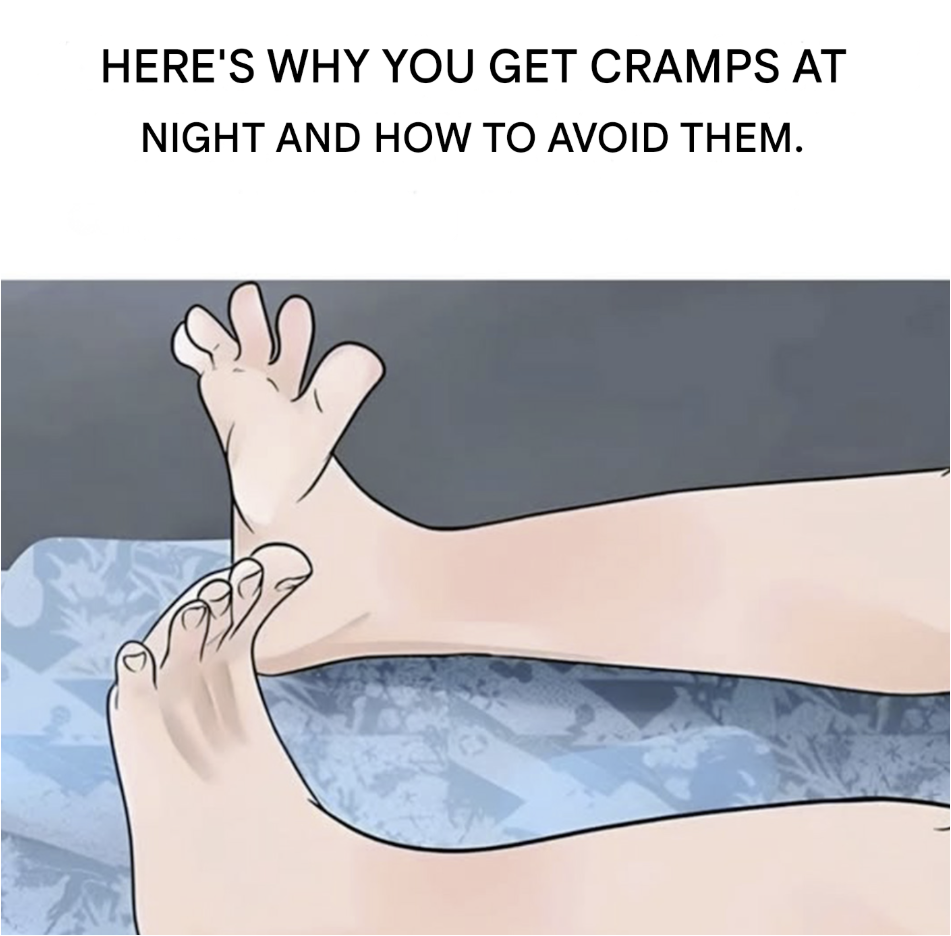They appear without warning, often in the middle of the night: those famous cramps that make you jump out of bed. A pain that can disrupt sleep… But why do they appear, and above all, how can you avoid them? If these muscle contractions concern you, stay with us: solutions exist for more peaceful nights.
Why do we get leg cramps at night?

Nighttime cramps are sudden, involuntary contractions of certain muscles, most often in the calves, feet, or thighs . They can last from a few seconds to several minutes, sometimes leaving persistent discomfort. Here are the most common causes:
-
Insufficient hydration
You may not be drinking enough water throughout the day. When dehydrated, the body struggles to maintain a proper balance of electrolytes (potassium, magnesium, calcium), which are essential for proper muscle function. As a result, muscles become more susceptible to spasms.
-
A mineral deficiency
A lack of magnesium , calcium , or potassium is a well-known factor in muscle cramps. These nutrients allow muscles to contract and then relax properly.
-
Poor blood circulation
Sitting or lying down for long periods without moving can slow down circulation, especially in the legs. Less oxygenated, the muscles become more prone to involuntary contractions during rest.
-
Muscle fatigue
After an active day—intense physical activity, long walks, or prolonged standing—muscles may react by involuntarily contracting during the night.
-
Sleeping position
Sleeping with your feet pointed downward (toes pointed) promotes shortening of the calf muscles, which increases the risk of cramping.
-
Certain health conditions
Certain conditions, such as pregnancy, diabetes, thyroid disorders, or certain nerve disorders, make nighttime cramps more frequent.
-
Side effects of certain medications
Certain treatments, such as diuretics, statins or beta-blockers, can promote the onset of cramps.
